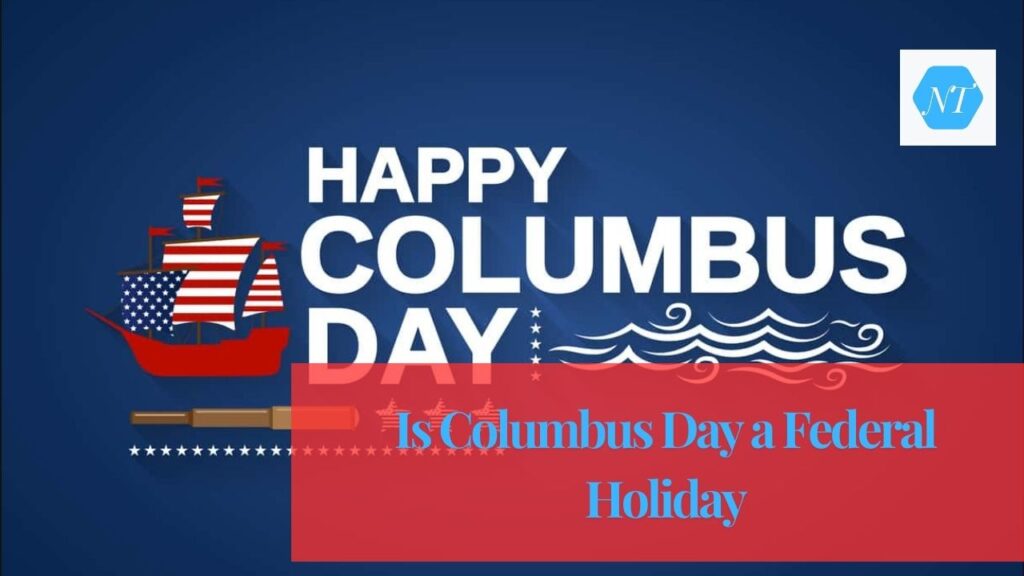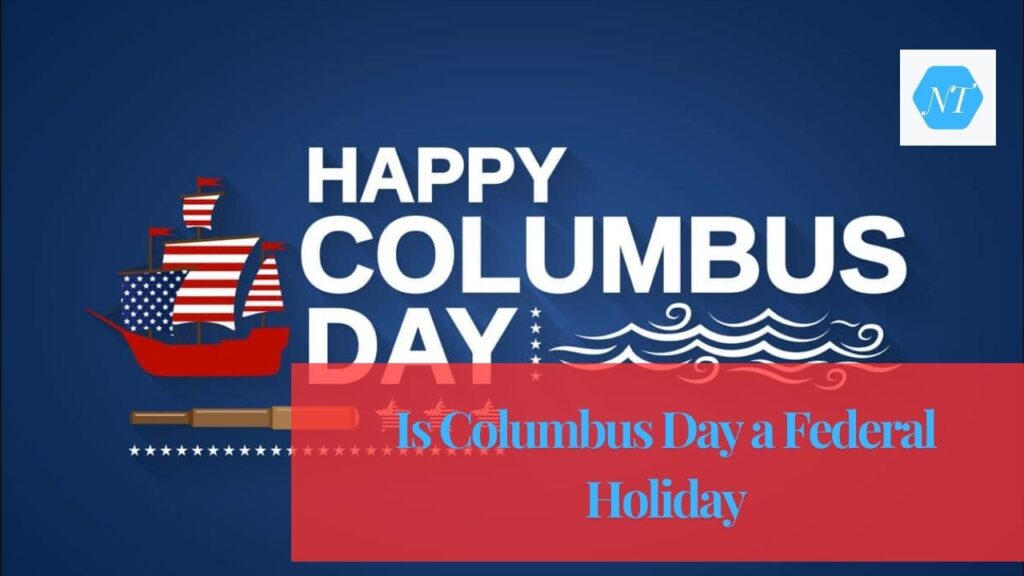Every year, Columbus Day is observed on the second Monday of October. Since it remains a federal holiday, the United States in commemoration still holds Columbus Day. Even though some states and local governments have replaced or renamed it as Indigenous Peoples’ Day, at the federal level, Columbus Day is still observed. It ensures that many government institutions, including federal offices and services, are close to observing the holiday.
Why Is Columbus Day a Federal Holiday?
Columbus Day is a federal holiday in the United States, celebrated to commemorate the landing of Christopher Columbus in the Americas in 1492. Provided with the sponsorship of Spain, Italian explorer Christopher Columbus is often called the discoverer of the New World, which had thousands of years of people inhabiting it before Columbus’s time.
The holiday was originally established to honour Italian-American culture and Columbus’s historical place. In recent decades, however, many Americans have called for a reinterpretation of Columbus’s legacy, focusing on the disastrous effects of European settlement on American Indians and generating increasing demands to substitute Columbus Day with Indigenous Peoples’ Day.

Columbus Day and Federal Employees
Being a federal holiday, Columbus Day is a paid holiday for federal employees much like other holidays- Independence Day and Thanksgiving. To this day, federal offices closed the United States Postal Service and government agencies will see no mail delivery or function at a near minimum.
The Pew Research Center reported that all the country’s federal employees have a four-day weekend because Columbus Day closes schools, state offices, and other government institutions. Many businesses also close or reduce their operating hours for the holiday, although private employers are not bound to do so. Most schools and state offices remain open for Columbus Day, except for when local governments decide to close them.
The Emergence of Indigenous Peoples’ Day
While it is still a federal holiday and named Columbus Day, there has been a significant shift toward the recognition of Indigenous Peoples’ Day and a movement to celebrate Native American history and culture and contributions of Indigenous peoples by having a focus on their resiliency and perseverance through centuries of colonization and oppression.
In 2021, President Joe Biden was the first U.S. president to issue an executive order formally recognizing Indigenous Peoples’ Day next to Columbus Day on the calendar, marking a watershed moment in America’s reckoning with its historical narrative. While not a federally observed holiday, many cities and states have adopted Indigenous Peoples’ Day, with increasingly opting to celebrate it in place of or in tandem with Columbus Day.
This shift is part of an even broader national conversation over the past couple of years regarding historical figures and their legacies, and how we appropriately commemorate significant events in American history.
Where Is Columbus Day Celebrated?
Columbus Day is followed variably by the state rules. It is still a federal holiday; however, it does not have to be honoured in all states. Some of the states that decided not to follow the observance include Hawaii, Alaska, Oregon, and South Dakota. Instead, these states observe different holidays, and among such are Indigenous Peoples’ Day or Native American Day.
Other states, like New York, California, and Illinois, still celebrate Columbus Day as a paid holiday for state employees; they may, however, decide to work on Indigenous Peoples’ Day for local or city governments.
Why is Columbus Day controversial?
The heart of the controversy surrounding Columbus Day lies in some historical consequences of his visit to the New World. Indigenous peoples and their supporters argue that Columbus’s arrival led to colonization, exploitation, and suffering of Native American peoples. The effects of the devastation wrought on Indigenous populations by the spread of diseases and violence, followed by forced labour, have been brutal.
For these reasons, many have called for a reevaluation of Columbus’s place in history, instead promoting an outlook that gives more attention to the histories and traditions of indigenous peoples rather than one European explorer’s importance.
Would Columbus Day be superseded by Indigenous Peoples’ Day?
The debate over Columbus Day’s replacement with Indigenous Peoples’ Day touches on wider debates over historical memory and cultural representation. Advocates of Indigenous Peoples’ Day argue that celebrating the contributions of Native Americans is a much more inclusive and historically accurate way to commemorate the second Monday of October.
However, others believe that Columbus Day and Indigenous Peoples’ Day should be celebrated on the same day. Different aspects of American history will be highlighted by each of these holidays.
Columbus Day celebrates the heritage of Italian-Americans and this ethnic group’s contribution to America.
Conclusion
Columbus Day remained a federal holiday, so every employee was given a paid day off, and government offices throughout the United States were closed for the day. Although the federal government still honours Columbus Day, many states and cities are now embracing Indigenous Peoples’ Day to honour Native American history and culture. The narrative may be shifting as well because Columbus Day and Indigenous Peoples’ Day can coexist with Columbus Day representing the openness toward inclusiveness that America is now exercising as it walks along its end.








